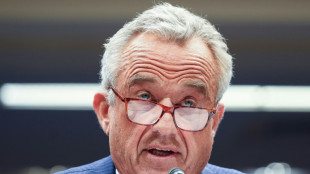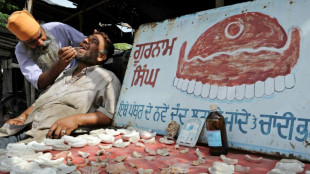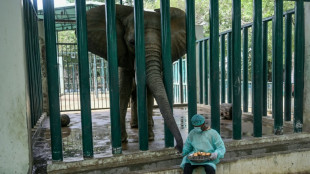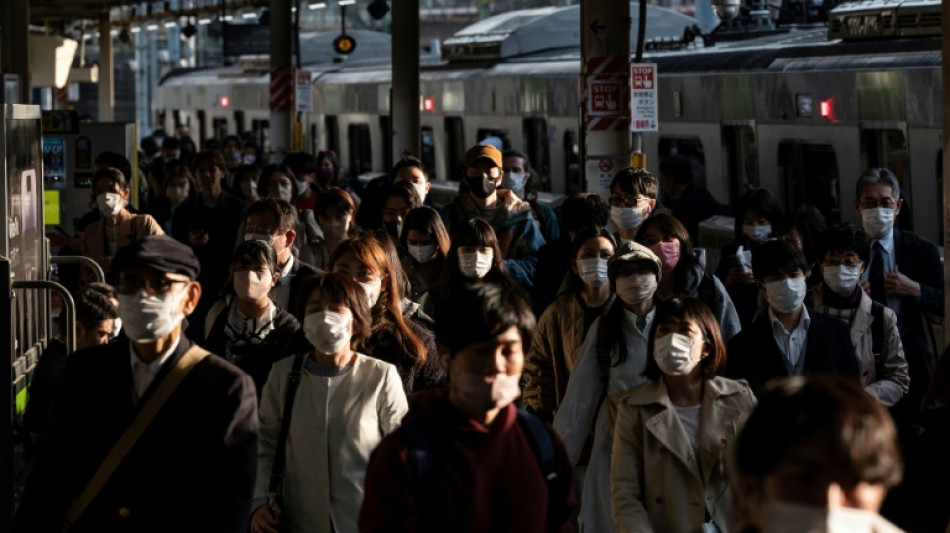
-
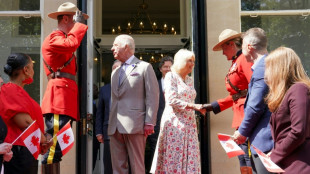 British king to visit Ottawa amid Trump-Canada tension
British king to visit Ottawa amid Trump-Canada tension
-
Cannes maitre d'hotel retires with memories of stars

-
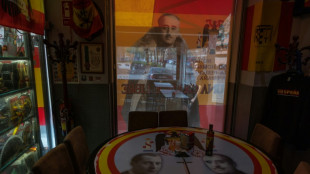 Franco symbols mark Spanish streets 50 years after dictator's death
Franco symbols mark Spanish streets 50 years after dictator's death
-
Blaze-hit Athens suburb trains to tackle new fire season
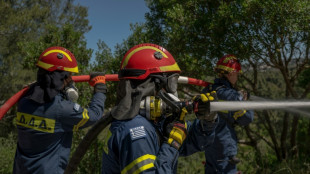
-
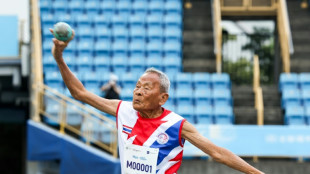 Thai athlete, 105, unrivalled but not lonely at World Masters Games
Thai athlete, 105, unrivalled but not lonely at World Masters Games
-
Japan core inflation tops forecasts as rice prices almost double
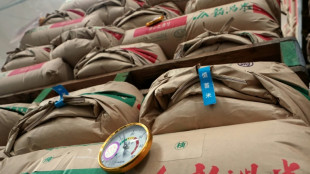
-
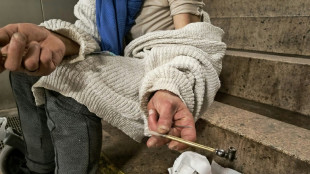 Row erupts as German city plans safe room for crack addicts
Row erupts as German city plans safe room for crack addicts
-
Swimming champ McEvoy says Enhanced Games 'record' means nothing

-
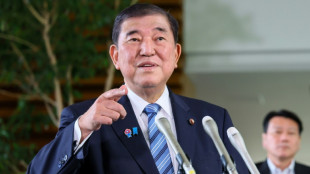 Japan PM presses Trump on tariffs ahead of new talks
Japan PM presses Trump on tariffs ahead of new talks
-
Gilgeous-Alexander leads Thunder to 2-0 lead over Minnesota

-
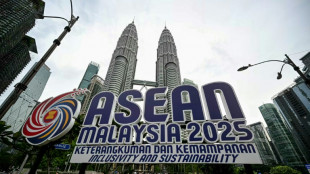 US tariff tensions test Southeast Asian leaders at regional summit
US tariff tensions test Southeast Asian leaders at regional summit
-
Trump attends memecoin gala as protesters slam 'crypto corruption'

-
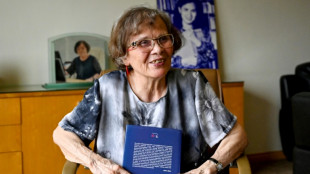 The pioneering Vietnamese professor taught by French maths genius
The pioneering Vietnamese professor taught by French maths genius
-
Asian stocks bounce back after Treasury-led sell-off
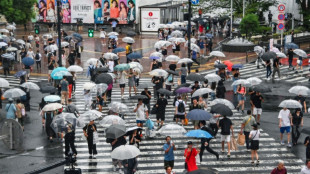
-
 Israeli director Nadav Lapid decries 'blindness' over Gaza
Israeli director Nadav Lapid decries 'blindness' over Gaza
-
In tune with nature: expert sounds out all of Ireland's bird species

-
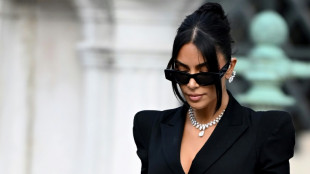 Verdict due in Kardashian Paris robbery trial
Verdict due in Kardashian Paris robbery trial
-
Russo leads Arsenal quest to slay Barcelona beast in Champions League final

-
 Premier League dream turns sour for promoted clubs
Premier League dream turns sour for promoted clubs
-
New boys Bordeaux-Begles face Northampton for Champions Cup glory

-
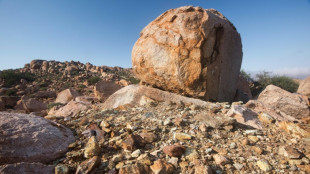 Rare earth production outside China 'major milestone'
Rare earth production outside China 'major milestone'
-
Did George Floyd protesters miss their moment for change?
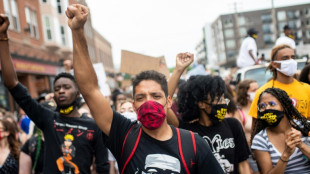
-
 Do grabs share of lead at LPGA Mexico event
Do grabs share of lead at LPGA Mexico event
-
Pak grabs lead as Scheffler looks for third straight win
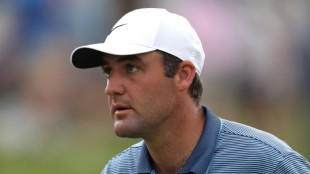
-
 Colombian VP accuses government of 'racism, patriarchy'
Colombian VP accuses government of 'racism, patriarchy'
-
Record floods devastate eastern Australia
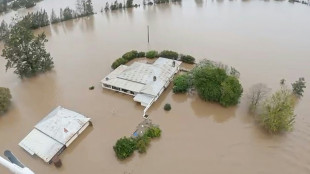
-
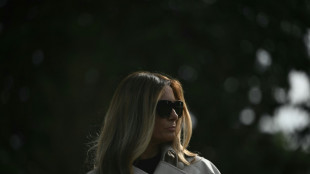 Melania Trump uses AI vocal replica to narrate audiobook
Melania Trump uses AI vocal replica to narrate audiobook
-
Anthropic touts improved Claude AI models

-
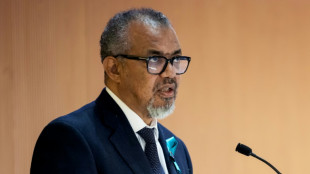 WHO chief begs Israel to show 'mercy' in Gaza
WHO chief begs Israel to show 'mercy' in Gaza
-
Alleged US killer of Israel embassy staff charged with murder
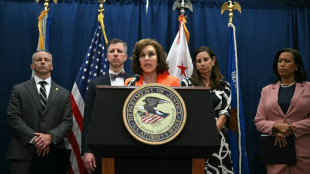
-
 US Senate blocks California's electric vehicle mandate
US Senate blocks California's electric vehicle mandate
-
Milan star Pulisic to skip USA's summer games

-
 G7 finance talks end in show of unity despite tariff turmoil
G7 finance talks end in show of unity despite tariff turmoil
-
Hamilton says Ferrari 'running out of time' to save season

-
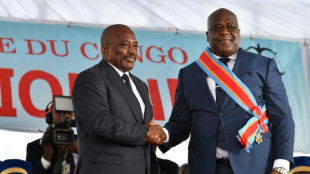 DR Congo ex-leader Kabila loses immunity to 'treason' probe
DR Congo ex-leader Kabila loses immunity to 'treason' probe
-
Trump hosts gala for memecoin buyers despite corruption concerns

-
 Heidenheim recover to draw with Elversberg in Bundesliga playoff
Heidenheim recover to draw with Elversberg in Bundesliga playoff
-
Israel PM names new security chief, defying attorney general
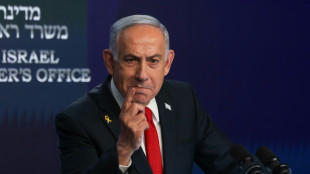
-
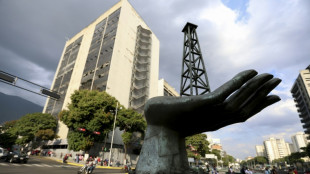 State Dept says Chevron must leave Venezuela, even as American freed
State Dept says Chevron must leave Venezuela, even as American freed
-
England's Crawley glad to 'repay faith' with Zimbabwe hundred
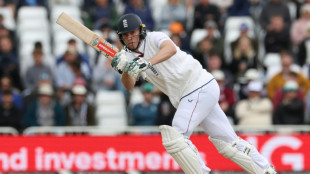
-
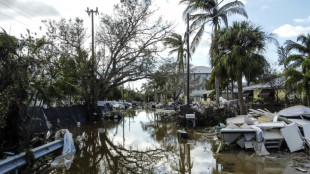 US braces for intense hurricane season as climate agency is gutted
US braces for intense hurricane season as climate agency is gutted
-
G7 finance chiefs say economic policy uncertainty is easing

-
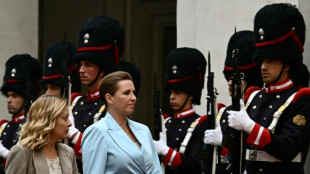 Italy, other EU states urge rethink on European rights convention
Italy, other EU states urge rethink on European rights convention
-
Nuggets confirm Adelman as permanent head coach
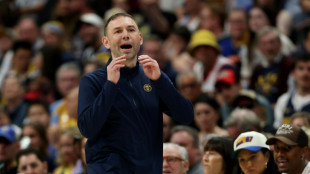
-
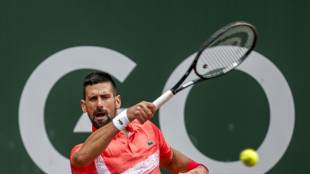 Birthday boy Djokovic avenges Arnaldi loss in Geneva
Birthday boy Djokovic avenges Arnaldi loss in Geneva
-
Israel blames Europe after embassy staff shot dead in US
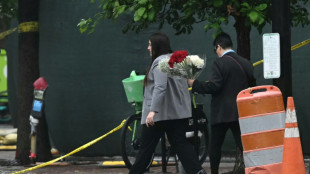
-
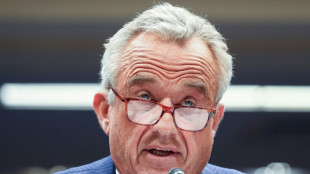 Trump admin sows doubt over vaccines in 'Make America Healthy Again' report
Trump admin sows doubt over vaccines in 'Make America Healthy Again' report
-
Marc Marquez says Silverstone focus is protecting MotoGP lead

-
 Madrid ex-mayor's family regains art lost to Franco regime
Madrid ex-mayor's family regains art lost to Franco regime
-
Marsh ton powers Lucknow to IPL upset over Gujarat


Japan eases mask guidelines, but few are keen to change
Japan's government eased its mask guidelines on Monday, recommending them only on crowded trains and in hospitals or care homes, but there was little sign residents were keen to unmask.
Japan has never had a mask mandate, but residents have adhered to guidelines to wear them indoors and outside from the early days of the pandemic, and masks were common even pre-Covid during cold and hayfever seasons.
The country is one of the last places in Asia to end nationwide masking recommendations, and on Monday morning most commuters kept their faces covered, on trains and outdoors.
"I think I'll keep wearing a mask for the moment," 46-year-old Tatsuhiko Ohashi told AFP on his way to work, outside Tokyo's busy Shinagawa station.
He still had "a bit of fear" of Covid and worried that getting infected unknowingly would "risk inconveniencing people around me".
Japan avoided lockdowns and other harsh restrictions during the pandemic but still fared better than many countries, with 73,199 deaths in a population of more than 125 million.
Some observers have credited masks and other voluntary measures, along with strict border closures, with that relative success.
But the government has been keen to gradually return to normal, reopening the borders and seeking to stimulate the economy.
There were just over 7,000 Covid cases reported nationwide on Sunday, and businesses have largely said they will leave it up to customers to decide whether to mask -- though staff will continue to wear them.
- 'Bit by bit' -
Hajime Yamaguchi, a professor of psychology at J.F. Oberlin University in Tokyo, said it was unlikely many Japanese would unmask quickly.
"The Japanese worry a lot about what other people think and fear being judged if they're the first to take off their masks," he told AFP.
"They will watch to see what other people do and unmask bit by bit," he added, noting that this year's particularly bad pollen season made it likely masks would be around until at least May.
Half of the people surveyed in February by national broadcaster NHK said they would continue to wear a mask even after the recommendations eased, while 38 percent said they expected to remove them more often.
"A lot of people have started to feel more comfortable behind a mask, realising how reassuring it is to communicate without revealing your face," said Yamaguchi.
Still, there were a handful of commuters embracing the new rules, including 49-year-old Hiromi Mitsui.
"If it's not an obligation, then there's no problem in taking off the mask, it's freedom of the individual," he said.
"Those who want to wear it can do so, and others don't have to. If we respect one another, there's no problem."
Prime Minister Fumio Kishida also arrived at work on Monday morning without a mask for the first time.
His government plans to downgrade the classification of Covid to the same level as the flu from early May.
M.Fischer--AMWN
